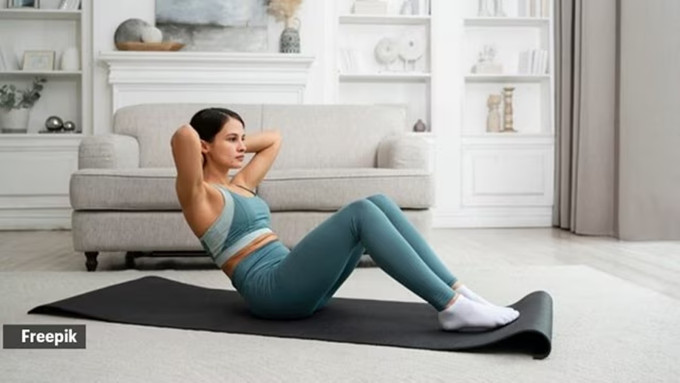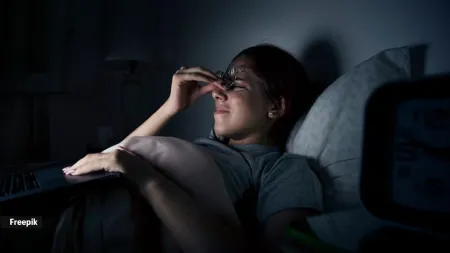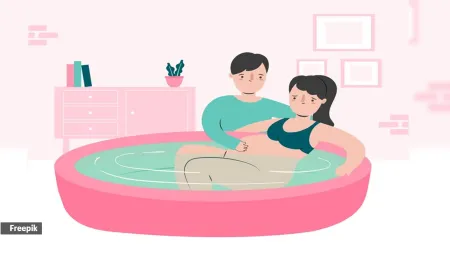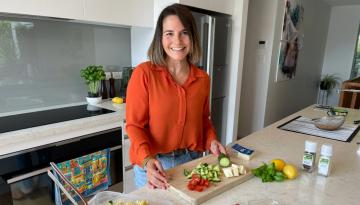Scientists say exercising 22 mins daily can cut death risk from prolonged sitting; here’s a routine to try
In recent years, office workers forced into extended periods of sitting have been bombarded with alarming headlines about the dire consequences of this inactivity, suggesting even regular exercise couldn’t fully mitigate the damage.
However, a study published in the British Journal of Sports Medicine offers a beacon of hope, finding that as little as 22 minutes of moderate to vigorous activity a day can counter the ill effects of prolonged sitting. Moreover, the researchers discovered a decrease in the risk of premature death from any cause as a person’s activity level increases.

What does the research say?
According to the study’s lead author, Edvard Sagelv, a researcher at The Arctic University of Norway, the current recommendation of 150 minutes per week of moderate to vigorous activity “is sufficient to offset the detrimental health effects of prolonged sitting.” Quoted by NBC News, he elaborated, “The beauty of this is that we’re talking about activities that make you breathe a bit harder, like brisk walking, gardening, or tackling a hill.”
Seeking to determine whether physical activity could affect the relationship between sedentary time and mortality, the researchers investigated the amount of activity and sitting time necessary to influence this risk.
Their findings revealed a decline in the risk of death with increased physical activity. Among those who sat for less than 10½ hours daily, an extra 10 minutes of activity translated to a 15 per cent lower death risk, while for those exceeding 10½ hours of daily sitting, the risk reduction jumped to 35 per cent.
 Exercise helps decrease the risk of death associated with prolonged sitting by counteracting its negative effects on the body. (Source: Freepik)
Exercise helps decrease the risk of death associated with prolonged sitting by counteracting its negative effects on the body. (Source: Freepik)
Why is prolonged sitting associated with a high risk of death?
Dr Sanjay Kumar, general physician, Cygnus Laxmi Hospital, explained that prolonged sitting increases the risk of death due to its association with several adverse health outcomes, including obesity, cardiovascular disease, type 2 diabetes, and certain types of cancer.
“When you sit for extended periods, your muscles are inactive, leading to decreased metabolism, poor blood circulation, and increased inflammation, all of which contribute to higher mortality rates,” he added.
Exercise helps decrease the risk of death associated with prolonged sitting by counteracting its negative effects on the body, according to Dr Kumar, who said that regular physical activity strengthens muscles, improves circulation, boosts metabolism, and reduces inflammation. “Engaging in exercise, such as brisk walking, jogging, cycling, or strength training, helps offset the harmful effects of sitting for long periods, promoting overall health and longevity.”
What can you include in your 25 minute workout routine?
According to Joel Arun Benjamin, professional track field athlete and fitness trainer, India has one of the highest burdens of cardiovascular diseases (CVD) worldwide.
“Brisk walking for 15 minutes can help us to take down the risk of CVD. Along with 15 minutes of strength training at least twice a week is most important thing which every human being should must do it, specially after the age of 30,” Benjamin explained in an interaction with indianexpress.com.
Human body starts losing lean muscles after the age of 30th by 8 per cent per decade, said Benjamin, adding that by the age of 60 that percentage gose upto 15 per cent per decade and he recommnded strength training to prevent this.
Bejamin noted, “You have many problems in life unless you have a health problem, once you have a health problem you only have one problem.”
Disclaimer: The copyright of this article belongs to the original author. Reposting this article is solely for the purpose of information dissemination and does not constitute any investment advice. If there is any infringement, please contact us immediately. We will make corrections or deletions as necessary. Thank you.





